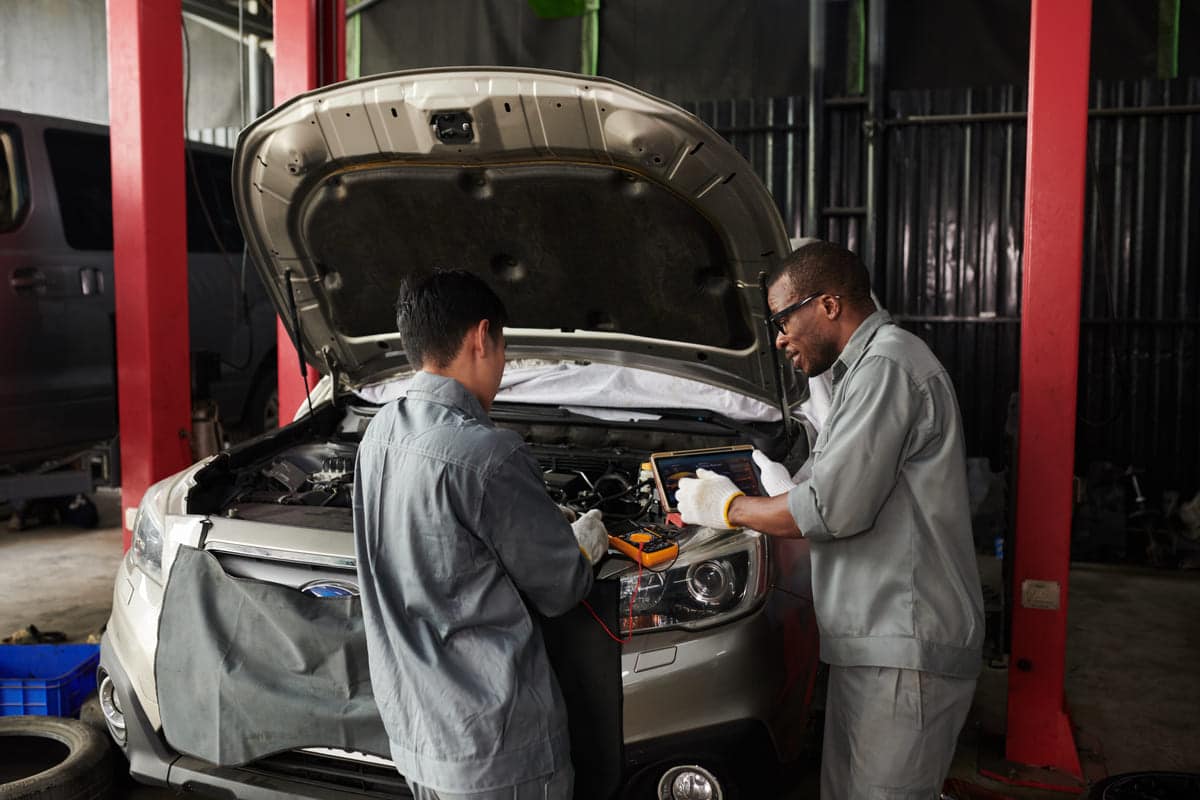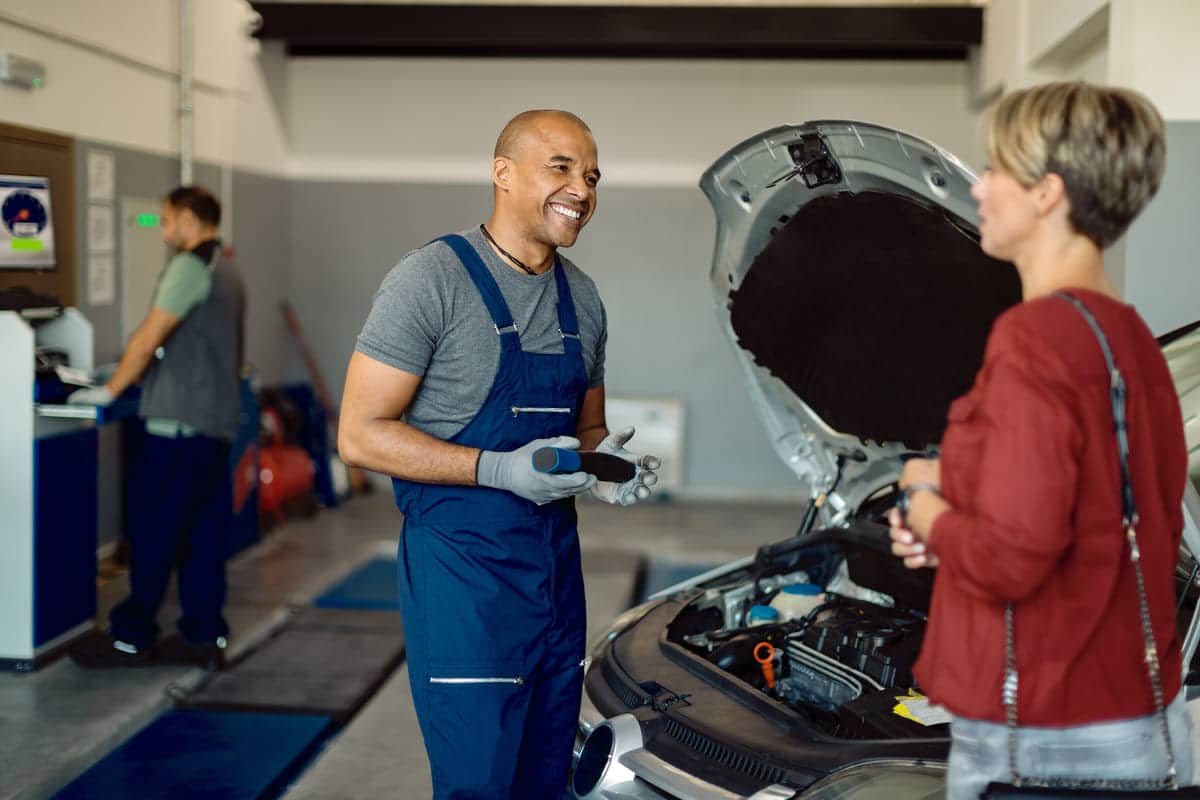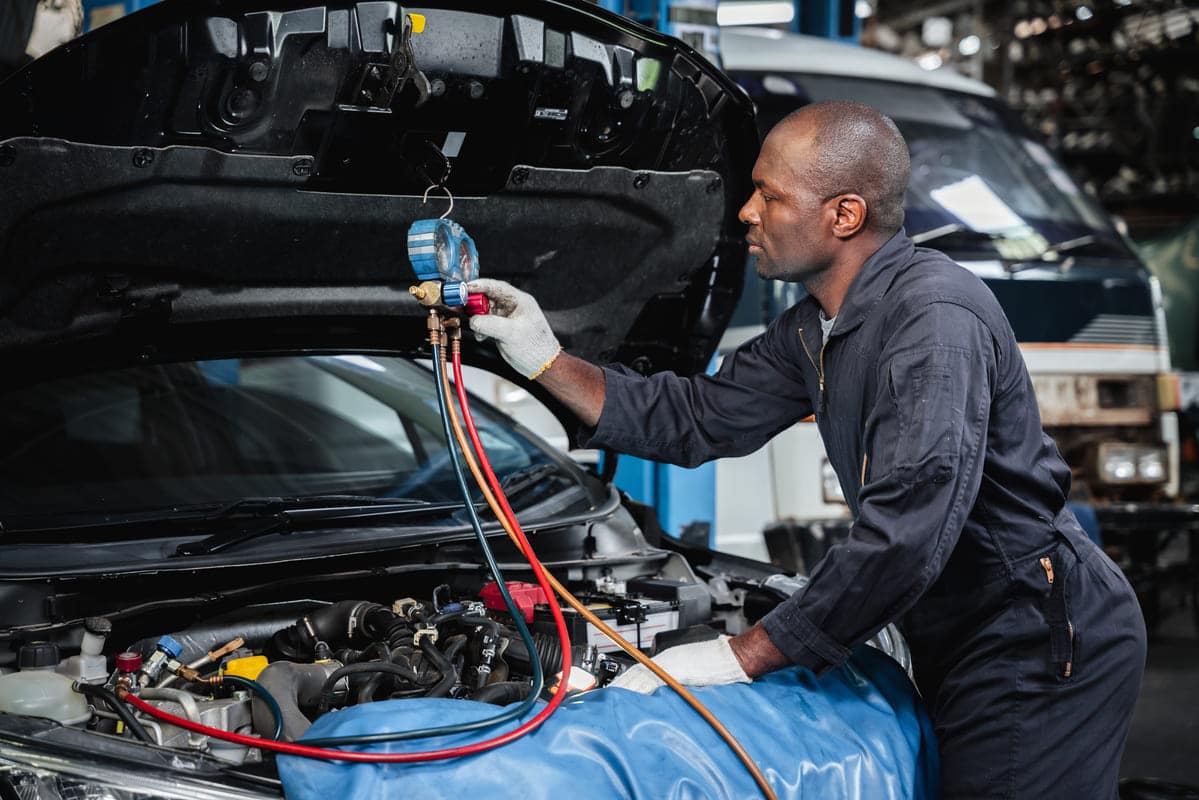Regular vehicle servicing is important for efficiency and safety. By following a service schedule you can identify problems early, save on repairs and make your vehicle more reliable, so you can drive smoother and longer.
What is Servicing a Car?
Servicing a is routine maintenance to keep it running. This includes tasks like oil changes, filter replacements and brake inspections. Regular servicing keeps your car safe and efficient.
Oil changes are a big part of servicing. Engines need clean oil to run smoothly. Over time oil gets dirty and less effective. Changing the oil keeps the engine in good nick.
Replacing filters is important too. Air and fuel filters catch dirt and debris. When they get clogged they can affect engine performance. Regular filter changes keep the engine healthy.
Brake inspections are important for . Worn-out brake pads can reduce stopping power. Checking and replacing brake pads and topping up brake fluid is safe driving.
Regular servicing prevents big problems. It extends the life of your car. By following a service schedule you can avoid costly repairs and have a reliable vehicle.
References
- Service (motor vehicle). Wikipedia. Retrieved from
What Does a Car Service Include?
Car servicing is important to keep your vehicle safe and efficient. Knowing the basics helps you know what happens during a service. Services are divided into minor and major depending on mileage and car usage.
Minor Service
A minor service includes a visual inspection, oil change and replacement. Technicians top up essential fluids like antifreeze, brake fluid, washer fluid and fluid. They inspect up to 35 items to check the car. Brakes are checked to the manufacturer’s guidelines. Some garages may recommend additional services if required.
Major Service
A major service includes everything in the minor service, plus 15-30 extra checks. These cover more items. If additional work is required this will incur extra cost.
Major Service
A major service includes everything in a full service. It also includes changing fuel filters and spark plugs and other worn items according to the manufacturer’s guidelines. Major services do not include unscheduled repairs.
Manufacturer’s Service
A manufacturer’s service is the most comprehensive and expensive. It covers all wear, maintenance and service items recommended by the car manufacturer. Checks include:
- Oil and oil filter replacement
- Brake fluid check and top-up
- Antifreeze coolant check and top-up
- Windscreen wash check and top-up
- Full brake check
- Power steering fluid check and top-up
- Steering and shock absorber checks
- Light, car suspension, and wheel alignment checks
- The , exhaust and charging system checks
- , pressure and tire tread checks
Each type of service keeps your vehicle in good condition, addressing safety and functionality needs.
References
- What Should Be Included in Car Servicing?. Automechanica. Retrieved from

What is Scheduled Service in the Car?
Scheduled service in a car is routine maintenance done at specific intervals. These intervals are set by the vehicle manufacturer and keeps the vehicle in optimal performance and safety.
Very Frequent Maintenance
- Oil and Oil Filter: Change motor oil and filter regularly to prevent wear and tear. Synthetic oils last between 5,000 to 10,000 miles. Check oil levels every 2 weeks and before long trips.
- Tires: Check tires for tread depth and pressure. Rotate tires every 6,000-8,000 miles to prevent uneven wear. Properly inflated tires improve fuel efficiency and safety.
Maintenance Before 30,000 Miles
- : Replace air filter every 15,000 to 30,000 miles. A dirty air filter reduces engine performance. Change more frequently if driving in dusty conditions.
- : Replace fuel filter around 30,000 miles. A clogged filter can make the engine run rough or not start. A pressure test can check its condition.
Maintenance Before 60,000 Miles
- Battery: Most batteries last 4-5 years or 50,000 to 60,000 miles. Test battery charge and clean terminals to ensure reliability.
- Brake Fluid: Check and replace brake fluid as needed. Contaminated fluid reduces braking power.
- Brake Pads/Shoes: Inspect and replace worn brake pads and shoes for effective braking.
- Brake Rotors: Check rotors for wear and replace if necessary.
- Coolant: Flush and replace coolant to prevent overheating and engine damage.
- Fluid: Change transmission fluid to ensure smooth shifting and extend transmission life.
Maintenance Before 90,000 Miles
- Hoses: Inspect and replace worn hoses to prevent leaks and overheating.
- Power Steering Fluid: Check and replace power steering fluid as needed to ensure smooth steering.
- Spark Plugs/: Replace spark plugs and inspect the ignition system to keep the engine running.
- Timing Belt: Replace the timing belt to prevent engine damage from a broken belt.
Always Check the Owner’s Manual:
Read your car’s owner manual for the manufacturer’s recommended maintenance schedule. Follow these guidelines to keep your vehicle reliable and safe over time.
References
- The Car Maintenance Schedule You Should Follow. CarGurus. Retrieved from
How Many Types of Car Services?
Car services are categorized into three: Interim, Full, and Major. Each type focuses on different aspects of vehicle maintenance to keep it in good condition.
Interim Car Service Intervals
An interim service covers essential maintenance every 6 months or 6,000 miles. Oil change and filter replacement, serpentine belt inspection, wiper blade inspection, and check. Suitable for high mileage drivers.
Full Car Service Intervals
A full service is every year or 12,000 miles. It includes all interim service checks plus additional checks. Technicians check the engine air filter, cabin air filter, coolant, belts, hoses and brake pads. A full service has over 50 separate checks.
Major Car Service Intervals
Major services cover critical maintenance items that are not serviced as frequently. These are every 24,000 miles or 2 years. They include all checks from interim and full services plus brake fluid exchange, replacement, transmission fluid check, timing belt replacement, battery test and tire balance & replacement.
Now you know the types of service, you can make sure your car gets the right service at the right time to keep it running and safe.
References
- Car Service Explained. Firestone Complete Auto Care. Retrieved from

What are Important Maintenance Tasks for a Car?
Regular car maintenance keeps your car running smoothly and safely. Here are the important maintenance to do.
- Oil and Filter Changes: Change the engine oil and filter. This keeps the engine lubricated and prevents wear. Check your owner’s manual for the recommended interval.
- Tire Maintenance: Check tire tread depth and pressure. Rotate them every 6,000-8,000 miles to even out the wear. Properly inflated tires improve fuel efficiency and safety.
- Brake Inspections: Check drum brakes or brake pads, rotors and fluid levels. Replace worn pads and rotors to keep braking effective. Regular inspections prevent brake failure.
- Fluid Checks: Check and top up essential fluids like coolant, brake fluid, power steering fluid, and transmission fluid. Proper fluid levels keep your car running smoothly.
- Battery Maintenance: Test the battery charge and clean the terminals to ensure good starts. Replace the battery if it shows signs of weakness or is more than 3 to 5 years old.
- Air Filter Replacement: Replace the engine air filter every 15,000 to 30,000 miles. A clean air filter improves engine performance and fuel efficiency.
- Belt and Hose Inspections: Check belts and hoses for wear and tear. Replace any that shows signs of cracking or damage to prevent breakdowns.
- Spark Plug Replacement: Replace spark plugs as per manufacturer’s recommendation. Good spark plugs ensure efficient combustion and engine performance.
- Wiper Blade Replacement: Replace wiper blades at least once a year. Clear visibility is important for safe driving, especially in bad weather.
Check all lights (headlights, brake lights, indicators). Replace any blown bulbs to be visible on the road.
By doing these maintenance you will keep your car in good condition, safe, and reliable.
References
- Service (Motor Vehicle). Wikipedia. Retrieved from https://en.wikipedia.org/wiki/Service_(motor_vehicle)#Scheduling


